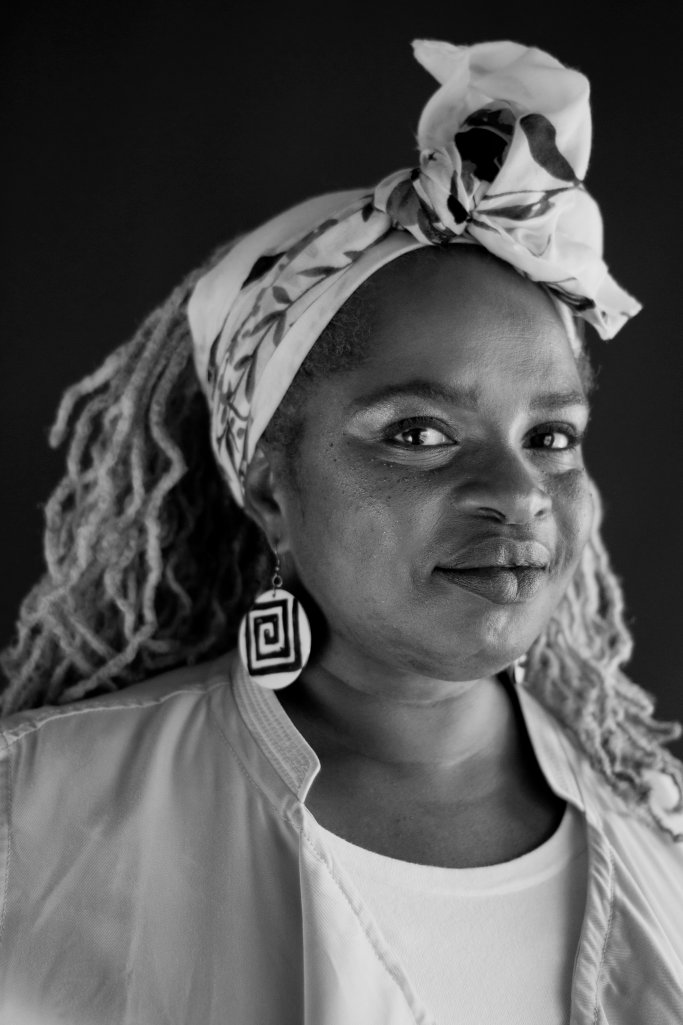The first Black person to be appointed to Nova Scotia Health’s board of directors says she was shocked by its disbandment.

Newly-elected Premier Tim Houston announced Wednesday that his government will dismiss the CEO and abolish the board of the health authority.
He also introduced a new four-person “leadership team” that he said would streamline management.
The news came as a surprise to OmiSoore Dryden, the James R. Johnston Chair in Black Canadian Studies and an associate professor in Dalhousie University’s department of community health and epidemiology, who was just appointed to the board in March of this year.
“I’m disappointed. Yesterday I was stunned,” she said.
“I knew there would be some kind of change, I guess I just didn’t realize it would be removing the CEO and disbanding the board.”
Lack of diversity
Dryden said the board was really just beginning to get to know each other. She said they had just confirmed the rest of their meetings for the year and had plans to visit Sydney in a couple of weeks to meet community members and tour the hospital.
The 14-member board also included an Indigenous member: Stephen Augustine, the associate vice-president of Indigenous affairs at Cape Breton University. He declined comment when contacted by Global News, saying he would like to discuss the matter first with Mi’kmaw leaders.
Dryden questioned whether the new leadership team will have the expertise required to address the well-documented issue of systemic racism against Black and Indigenous people within the health-care system.
“While we’re all responsible for addressing systemic racism … something is lost if you do not have any kind of expertise in these conversations,” she said.

Get weekly health news
“It would’ve been great if they had identified in this white, four-person leadership team what they would be doing to make sure they were accountable to Mi’kmaw and African Nova Scotian communities, and they haven’t done that.”

Dryden, who moved to Nova Scotia in 2019 and is not African Nova Scotian, said she had been hoping to see an African Nova Scotian person on the board too.
She said she had a “very good” phone conversation with the new health minister, Michelle Thompson, on Wednesday afternoon where she voiced her concerns.
Although Thompson was “compassionate,” Dryden said she was unable to say what expertise the new team would have regarding equity, diversity and inclusion. She was told that Thomson would find out and “let her know.”
“I hope to be able to have a conversation with her in the future again,” said Dryden.
“But again, I’m concerned about that … Why didn’t we know that information before they were appointed and before the board was disbanded and the CEO was dismissed? Why wasn’t that part of the announcement?”
In a statement late Thursday, Department of Health and Wellness spokesperson Marla MacInnis said they were “incredibly thankful” for the work done by the previous board of directors.
“We are very committed to strengthening our partnerships with Black, Indigenous and People of Colour communities in Nova Scotia so that everyone has access to culturally safe and appropriate health services,” it said.
“The Department of Health and Wellness recently created an equity and engagement division. The division will be engaging and relying on community voices, race-based data and lived experiences to continue to inform and shape government’s vision for an equitable health system for Nova Scotians.”
It added that Nova Scotia Health created an African Nova Scotian health consultant position in early 2020, and later on an Indigenous health consultant role.
“There are a lot of discussions happening to make sure all voices and concerns are heard and respected,” the statement said.
“The next phase of this transition will see the Premier, Minister Thompson and the health leadership team tour the province to hear from frontline health-care professionals and learn more about the experiences Nova Scotians are having with the healthcare system.”
‘Not being taken seriously’
Dryden also had concerns about the appointment of Pat Dunn, who is white, as the new minister responsible for African Nova Scotian Affairs.
That appointment came as Kesa Munroe-Anderson, who was appointed as the deputy minister of Communities, Culture and Heritage by former Premier Iain Rankin in February, was also dismissed from her post.
“Again, it feels like the expertise of African Nova Scotians here, Black people here, are not being taken seriously, or kept in the conversation,” said Dryden.
“My concern is that in appointing this new person, that appointment happened at the same time that they removed someone with the expertise and qualifications like Dr. Munroe-Anderson. And that causes anxiety, and rightfully so.”
A community petition calling for a person of colour to be appointed as the minister responsible for African Nova Scotian Affairs had gathered more than 900 signatures, as of Thursday afternoon.
‘Trying to still have hope’
Despite her short time on the board of directors, Dryden has done work she’s truly proud of.
She said one of her first tasks was to compile a reading list about systemic racism in health care and was “taken aback” by how many members actually read them.
“We saw that for those who did the readings, it was also informing the type of conversation we were having. So, I kind of take that as a win,” she said, adding that these conversations can lead to better ideas on how to improve the health-care system.
“I feel like some of that had just started, and then, we’re done. So we’ll see. I don’t know. I’m trying to still have hope.
“There’s ways that we can always affect the system. We’ve done it in the past … and I know that we will continue to push for accountability and better care for our communities.”









Comments